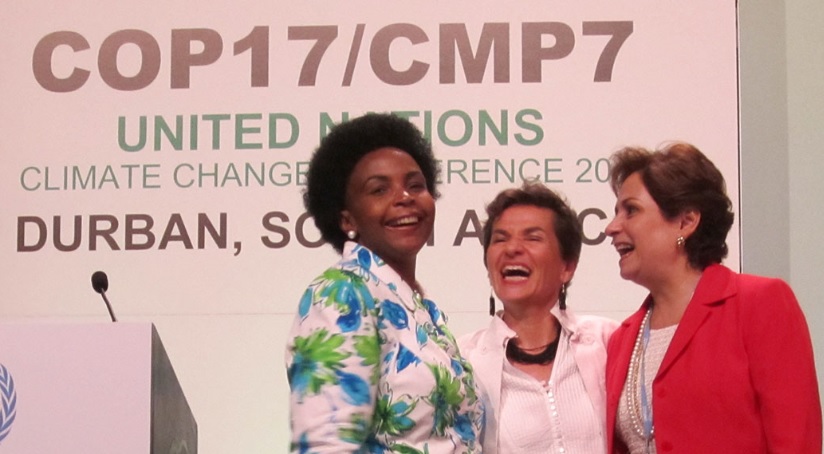|

Members of the Troika+ on
Gender and Climate Change at COP17:
Maite Nkoana-Mashabane, COP17/CMP7
President and Minister of International Relations
and Co-operation, South Africa;
Christiana Figueres, Executive Secretary
of the UN Framework Convention on Climate Change;
and Patricia Espinosa, COP16/CMP6 President
and Minister for Foreign Affairs,
Mexico. Durban, 2011.
|
Troika+ of Women Leaders on Gender and Climate Change
The Troika+ of Women Leaders on Gender and Climate Change is a network of women leaders and supportive men committed to working together on gender and climate change, consisting of more than 55 high profile women leaders including women Ministers, deputy Ministers and senior women leaders from various international organisations.
The decision to create a Troika+ of Women Leaders on Gender and Climate Change was a key outcome from a high-level event co-hosted by the Government of Mexico and the Mary Robinson Foundation – Climate Justice at the United Nations Framework Convention on Climate Change (UNFCCC) Conference of the Parties/ Conference of the Parties serving as the meeting of the Parties to the Kyoto Protocol (COP16/CMP6) in Cancun, Mexico in 2011.
|